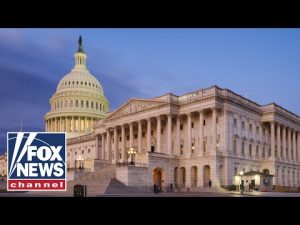In a troubling turn for America’s educational system, a school district recently halted a long-standing rule designed to inform parents about potentially controversial books. This policy allowed parents to opt-out their children from reading materials that might conflict with their religious beliefs or personal values. However, when the number of parents utilizing this option began to decline, the school board decided to abandon the practice altogether. This raises significant concerns about parental rights and the role of schools in shaping children’s understanding of complex social issues.
Recently, a decision by Justice Samuel Alito reinforced the need for transparency in educational content. The ruling requires schools to uphold parents’ rights to opt their children out of content conflicting with their religious beliefs. This decision underscores the importance of parental involvement in a child’s education and emphasizes the need for schools to respect family values. Parents deserve to have a say in what their children are exposed to in the classroom, particularly when it comes to delicate subjects that may not align with their beliefs.
The fact that schools are introducing materials without prior notice to parents is troubling. The educational focus should remain on foundational subjects like math, science, and reading. Instead, educators are choosing to integrate discussions around sexuality and alternative lifestyles, which many parents believe has no place in the classroom. It is essential to recognize that the majority of children are not even contemplating these issues at their young age. The introduction of such topics can create unnecessary confusion and distress among impressionable students.
Moreover, there is a glaring double standard in how schools approach the content they deem appropriate. If schools were to present Christian literature or any material promoting traditional values, it would likely provoke a public outcry. Parents and conservative groups would be appalled, yet similar outrage is often absent when it comes to content that promotes progressive values. This inconsistency highlights a significant disconnect between what schools consider educational and what many families believe should be taught.
Ultimately, the message is clear: parents should have the authority to determine what their children are exposed to in schools. The role of education should be to provide essential knowledge and skills, not to push controversial social agendas. If parents desire their children to explore topics related to sexuality or identity, that conversation should happen at home, not in a classroom environment. Schools must focus on their core responsibilities and leave complex discussions to families, ensuring that they respect the values and beliefs of those they serve.







